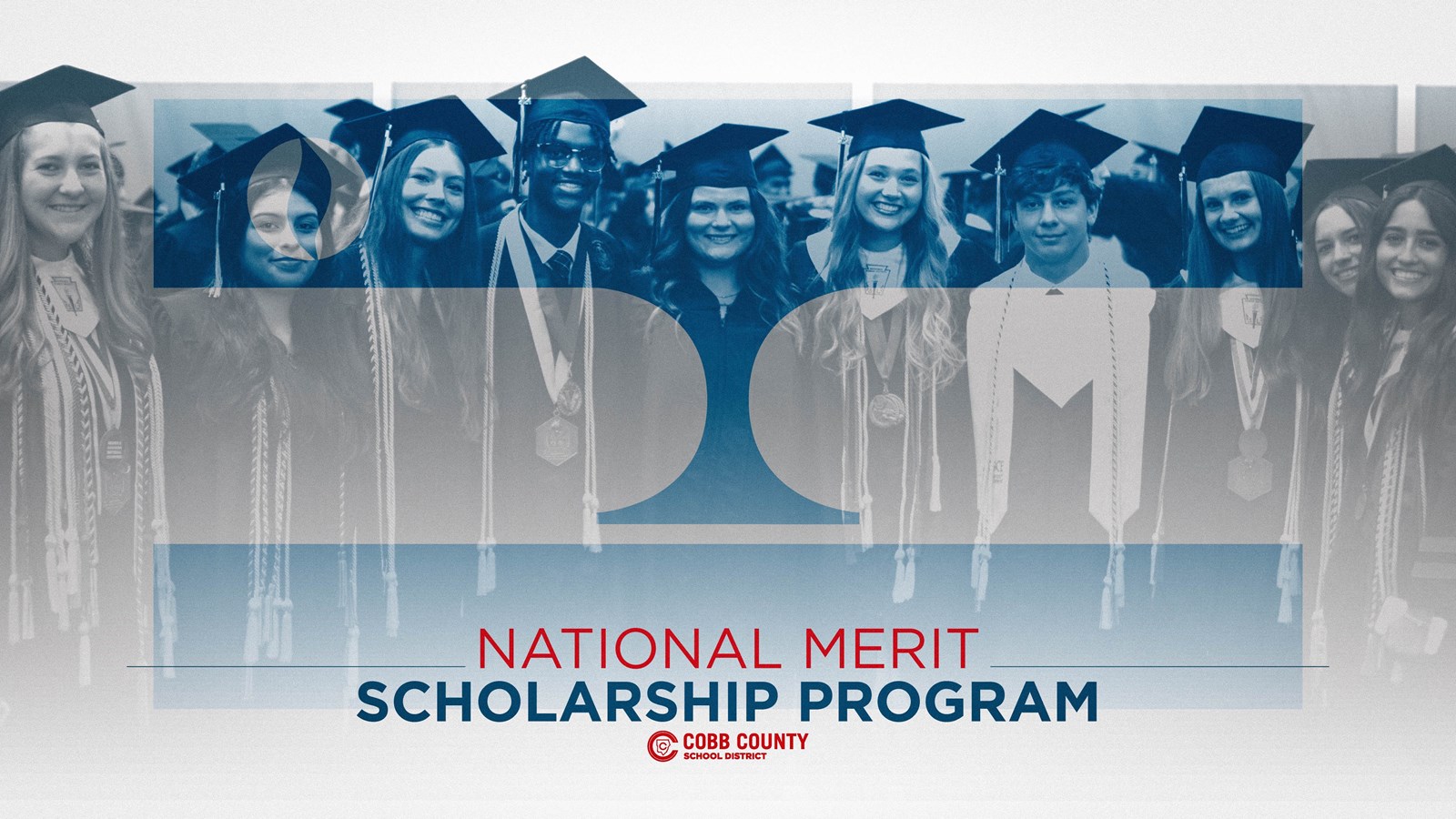
May 7, 2025 — The National Merit Scholarship Corporation (NMSC®) has announced this year’s National Merit $2500 Scholarship winners. The 2,500 Merit Scholar designees were chosen from a talent pool of more than 15,000 outstanding Finalists in the 2025 National Merit Scholarship Program.
Seven Cobb Schools students were among the 2500 selected nationally. The winners came from Campbell, Lassiter, Pope, and Walton High Schools.
The $2500 Scholarship winners are the Finalists in each state judged to have the strongest combination of accomplishments, skills, and potential for success in rigorous college studies. The number of winners named in each state is proportional to the state’s percentage of the nation’s graduating high school seniors.
These Scholars were selected by a committee of college admissions officers and high school counselors, who appraised a substantial amount of information submitted by both the Finalists and their high schools: the academic record, including difficulty level of subjects studied and grades earned; scores from the Preliminary SAT/National Merit Scholarship Qualifying Test (PSAT/NMSQT®); contributions and leadership in school and community activities; an essay written by the Finalist; and a recommendation written by a high school official.
NMSC finances most of these single-payment National Merit $2500 Scholarships. Corporations and company foundations that sponsor awards through NMSC help underwrite these scholarships with grants they provide instead of paying administrative fees. Donations made to NMSC’s President’s Fund also provide funding for some National Merit $2500 Scholarships awards. Scholars may use their awards at any regionally accredited U.S. college or university.
Congratulations to the following $2500 Scholarship winners from Cobb:
Aiden B. Ekanayake (Campbell)
Mara Claire Hanlon (Campbell)
Elizabeth George (Lassiter)
Elizabeth Anne Jones (Pope)
Vipul Bansal (Walton)
Riley E. Rice (Walton)
Ryan Zee-Jay Tan (Walton)
About the 2025 National Merit Scholarship Competition:
This year’s National Merit Scholarship Program began in October 2023 when high school juniors took the PSAT/NMSQT, which served as an initial screen of program entrants. Last fall, the highest-scoring participants in each state, representing less than one percent of the nation’s high school seniors, were named Semifinalists on a state-representational basis. More than 16,000 Semifinalists had an opportunity to continue in the competition.
Over 15,000 students from the Semifinalist group met the very high academic standards and other requirements to advance to the Finalist level of the competition. By the conclusion of the 2025 program, more than 6,930 Finalists will have earned the “Merit Scholar” title and received a total of nearly $26 million in college scholarships.
NMSC, a not-for-profit organization that operates without government assistance, was founded in 1955 specifically to conduct the National Merit Scholarship Program. Most scholarships offered each year are underwritten by approximately 280 independent corporate and college sponsors that share NMSC’s goals of honoring scholastically talented youth and encouraging academic excellence at all levels of education.
The electronic translation service is hosted by Google Translate. The quality of the translation will vary in some of the languages offered by Google. Google Translate is a free service and currently offers translation in over 50 languages, although an impressive number, this does not capture all languages or dialects. The basic translation’s goal is to capture the general intention of the original English material.
The Cobb County School District does not guarantee the quality, accuracy or completeness of any translated information. Before you act on translated information, the District encourages you to confirm any facts that are important to you and affect any decisions you may make.
The Cobb County School District is committed to parent, family and community engagement, and it is our hope that by providing this tool on our website that we are making our information more accessible to families whose first language is not English and thereby enabling better engagement in public education.

Recent Comments